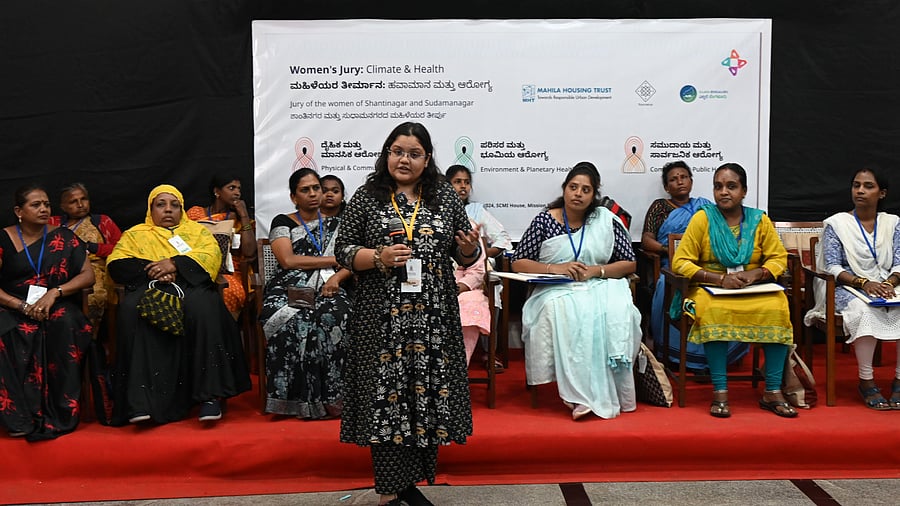
A citizens’ jury, consisting of 15 women from Shanthinagar and Sudamanagar slums, discusses intersection of climate change and health in Bengaluru on Saturday.
Credit: DH photo
Bengaluru: In a unique intervention to address the impact of climate change on low-income households, a citizens’ jury consisting of 15 women from Shanthinagar and Sudamanagar slums discussed the intersection of climate change and health.
The two-day event, organised jointly by Bengaluru-based organisations Socratus and Mahila Housing Trust, which concluded on Saturday, raised pertinent questions nagging both personal and community living conditions of women and gender minorities from low-income families.
Sharing her views, Mary, a gig worker from Shanthinagar said that accessibility to potable water 24x7 is a key concern.
On a pledge to make regular health checkups more convenient, the jury noted that they need primary health testing facilities to be available at a single-window in multiple accessible locations, such as Anahat clinic in Shanthinagar.
“The services should be affordable. Basic health testing should be made available in Anganwadis and schools,” according to the jury’s verdict.
Asserting the need for a fair work policy in the unorganised sector, the jury demanded for paid sick leave and weekly leaves for everyone, including domestic workers, construction workers, ASHA workers, pourakarmikas, midday meal cooks and other essential workers.
“Job security for unorganised sectors, minimum, fair, timely wage must be made mandatory. We work more than what we are paid for. Therefore, we want to demand for fair wages,” the jury noted, adding that while the government often accepts the demands but fails in implementing them.
The jury also highlighted the cost of transportation due to unavailability of buses and buses not stopping at designated spots.
The event had participation from World Resources Institute (WRI) and Bruhat Bengaluru Mahanagara Palike’s (BBMP) Climate Action
Cell.